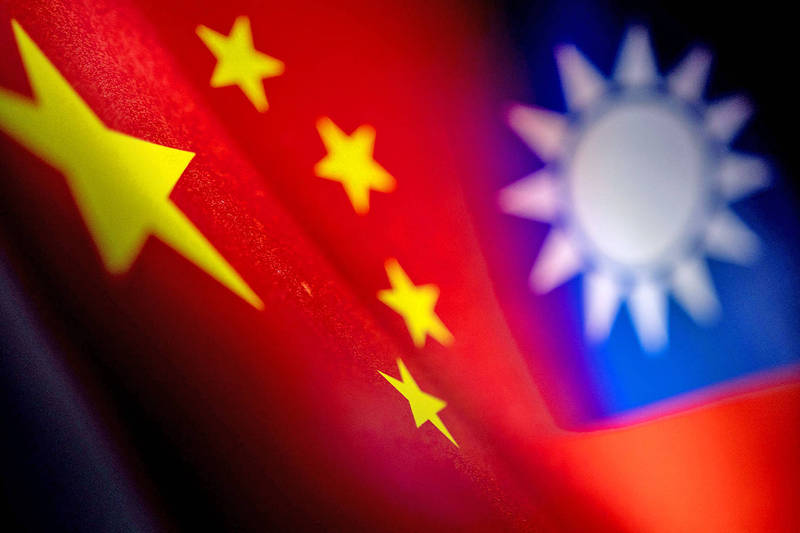《TAIPEI TIMES》Chinese public not so keen on unification: poll

Chinese and Taiwanese flags are pictured in an illustration taken on April 28 last year. Photo: Reuters
INVASION UNPOPULAR: Chinese would likely accept their government having a softer stance toward cross-strait relations, one of the coauthors of the article said
By William Hetherington / Staff writer, with CNA
Interest among the Chinese public in the issue of China’s unification with Taiwan is low, researchers said, citing the results of a poll.
An article titled “Assessing Public Support for (Non-)Peaceful Unification with Taiwan: Evidence from a Nationwide Survey in China,” published in the Journal of Contemporary China on May 14, showed that only 55 percent of those surveyed in China would support the use of military force to achieve unification with Taiwan.
In the survey, which polled 1,824 people on the question of how they would like to see the issue of Taiwan’s unification with China resolved, “only one out of one hundred rejected all but the most extreme option of wutong (武統, unification through military force),” the researchers wrote.
The survey presented respondents with five options regarding Taiwan: to achieve unification through military force; to invade Kinmen and Lienchiang counties and force Taiwan to surrender; to use economic sanctions to force negotiations; to maintain the “status quo” and strengthen China’s national power to encourage Taiwan to voluntarily seek unification; or to allow Taiwan to choose its own path, including independence.
Support for most options was nearly equal, except for the option that included Taiwan’s independence, which 22 percent supported.
University of Miami political science researcher June Teufel Dreyer commented on the results during a Radio Free Asia program on Monday.
“This obviously does not support [Chinese President] Xi Jinping’s (習近平) statement that ‘the whole country is eagerly looking forward to the return of Taiwan,’” she said.
RAND Corp Hu Taiwan Policy Initiative director Raymond Kuo (郭泓均) also commented on the survey, saying that support in China for the use of military force against Taiwan might be even lower than what the survey reflects.
Based on research on the level of self-censorship practiced by Chinese when taking polls, the actual percentage of those who support military force might be closer to 25 percent, he said.
Chinese would also be influenced by a number of other factors, including China’s human rights situation, political factors and the possibility of US involvement in a conflict in the Taiwan Strait, he said.
National University of Singapore researcher Adam Liu (劉遙), who is one of the coauthors of the article, said that China’s rhetoric on Taiwan had toughened in comparison with when former Chinese presidents Hu Jintao (胡錦濤) and Wen Jiabao (溫家寶) were in power, which might be attributed to US-China tensions or to the administration of President Tsai Ing-wen (蔡英文), but Chinese would likely accept their government having a softer stance toward Taiwan.
新聞來源:TAIPEI TIMES
















